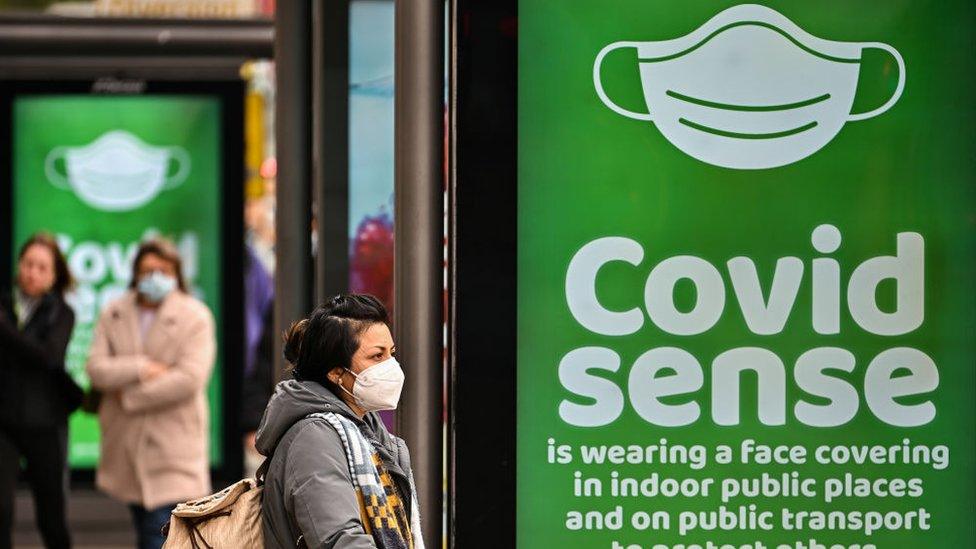Coronavirus: What does the rule of six mean for me?
- Published
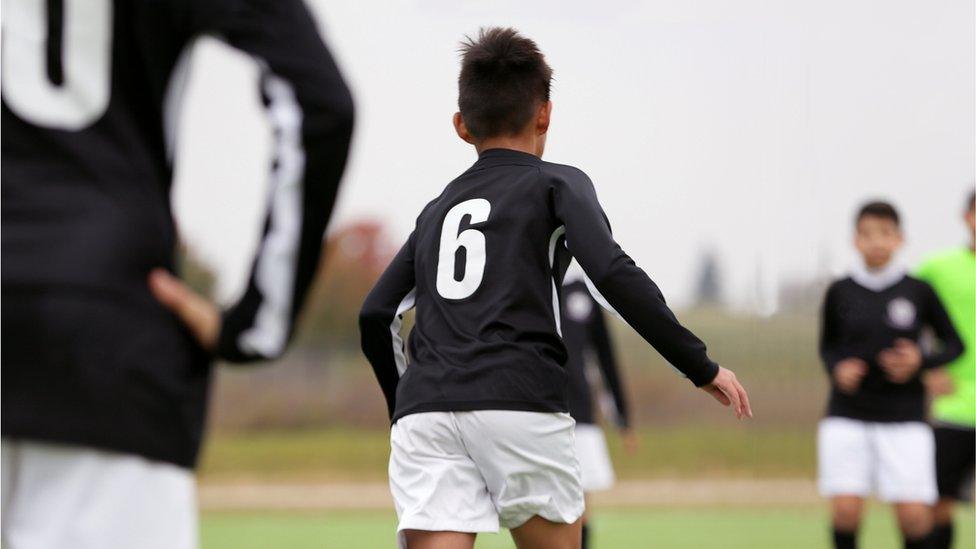
The number six takes on a new significance for Scotland from Monday
The number of people who can meet in Scotland, either inside or outdoors, has been reduced to six in a bid to stop the spread of coronavirus.
We have asked public health experts and checked the latest Scottish government guidance, external to answer your questions about what the new rules mean for you.
What are the new rules?
From Monday, a maximum of six people from two different households will be able to gather together.
The restrictions do not apply where there is other sector-specific guidance in force, such as for gyms, childcare or organised sports, and there will be some other limited exceptions for larger households, education, and places of worship.
But it does apply to pubs and restaurants, where customers will also have to wear face coverings indoors when they are not eating and drinking.
Additional local restrictions, external cover more than 1.75 million people living in Glasgow, North and South Lanarkshire, East and West Dunbartonshire, Renfrewshire and East Renfrewshire. They should not host people from other households in their own homes or visit another person's home.
Family and children
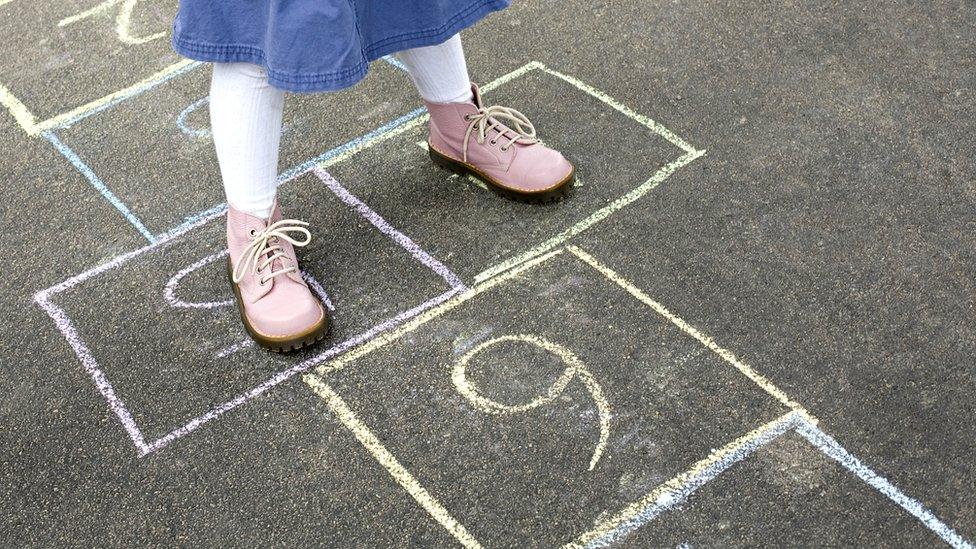
Children under 12 don't count when it comes to a gathering of two households
Q: I have a big family, so there are six of us before we even meet anyone else. Can we see anyone? Sharon, South Lanarkshire.
A: The Scottish government has clarified that the main thing here is the number of households. If that sticks to two, larger families can get together. As long as there are no more than six over 12s, children under 12 aren't counted towards the six.
Q: We are moving our son into university halls this weekend. How will it work for him? Mike, Fife.
A: The Scottish government's clinical director Prof Jason Leitch Leitch said there is a whole separate set of guidance for higher and further education. He said: "If you live in shared accommodation, for example a group of four sharing a kitchen/bathroom, then you create a new household. If you live in large halls with your own room, own cooking facilities/bathroom, you are a household all of your own." Note that hospitality rules apply in student areas and eating places - two households, six people, social distancing.
Q: I live in Dumfries and my mum and sister live in Carlisle. Is it right that I can visit my mum when my sister is there, but both of them can't visit me together? Nick, Dumfries.
A: The Scottish government says you should follow the rules for the country you are in and limit household mixing wherever you can.
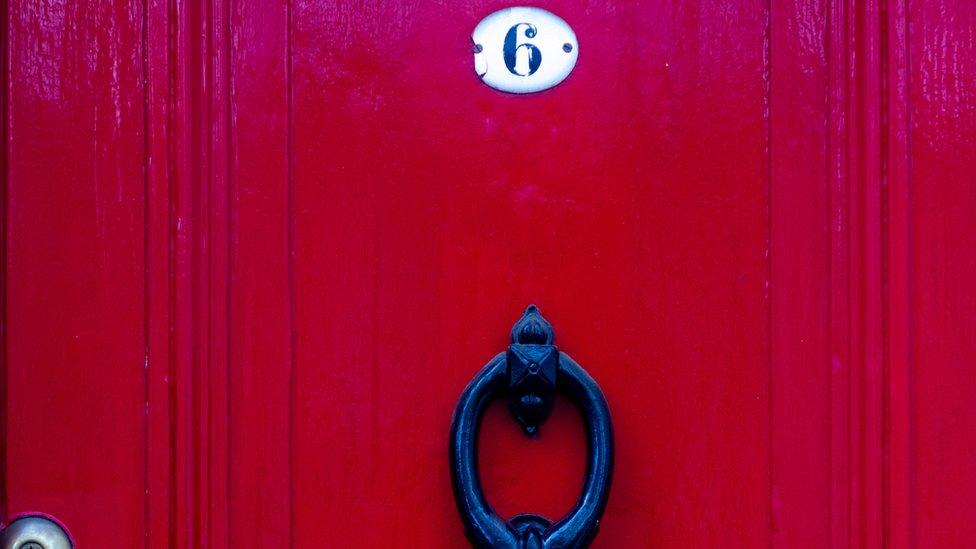
Families should stick to the local rules when it comes to restrictions and families which live in different areas
Q: I live in Glasgow where we can't host anyone in my house or visit any other households for now. Can we visit our daughter in England?
A: No, you can't. Under local restrictions you cannot visit people in other areas.
Q: If you are single and have formed a "bubble" with another household, is that one or two households for the purpose of the restrictions? Moira McCracken, Carmunnock.
A: Your bubble counts as one household.
Celebrations and holidays
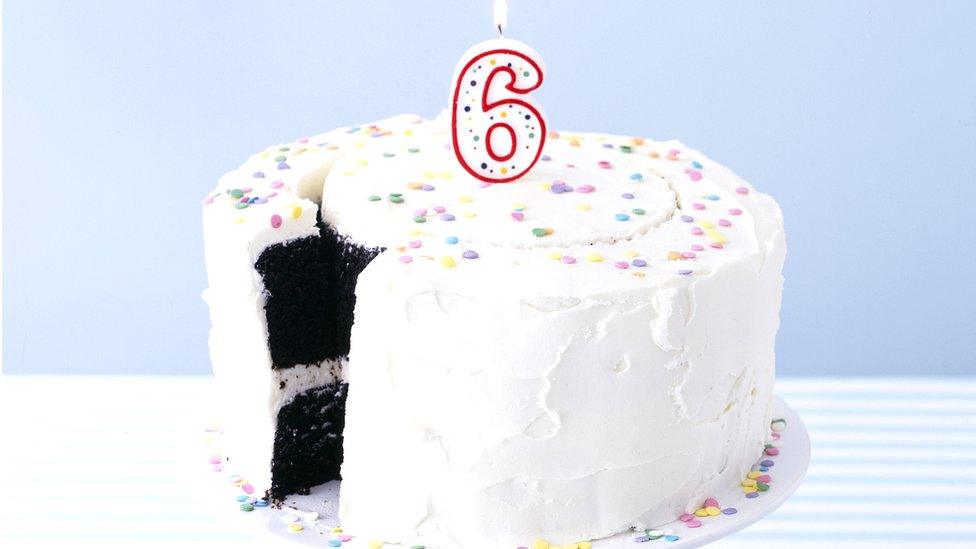
Children's birthday parties are currently under review
Q: Can my seven-year-old son have four of his school friends over for a birthday tea?
Nicola Sturgeon said on Friday that events with lots of children from different households unfortunately couldn't go ahead, but she had asked for "additional expert advice to see whether in some circumstances we could exempt children from the two household rule as well." This could mean that children's birthday parties could go ahead on a limited basis as long as adults complied with the limits. This will be clarified in the next few days.
Q: My daughter is supposed to be getting married next week after cancelling her wedding twice. The reception is for 15 people and is supposed to be taking place in our big garden. Can this go ahead? Graham, Perth.
A: Jillian Evans is head of health intelligence at NHS Grampian and says this does not look good. She said: "My reading is that for the ceremony itself, indoors in a public place, you can have up to 20 people including the couple, the witnesses and the guests. But now with the reception, the same rules apply for indoor and outdoor gatherings at home. You will be confined to six people and two households."
Q: I live in England and have a self-catering holiday booked in Scotland with five other people from two other families. Can I go? Anne, Huntingdon.
A: The simple answer is no. Two households and six people applies.
Q: Can I meet my two friends in the pub? Nicola Hunter, Glasgow.
A: Only if they are from the same household. All previous regulations regarding hospitality have been superseded by the six person, two household rule.
Outdoors
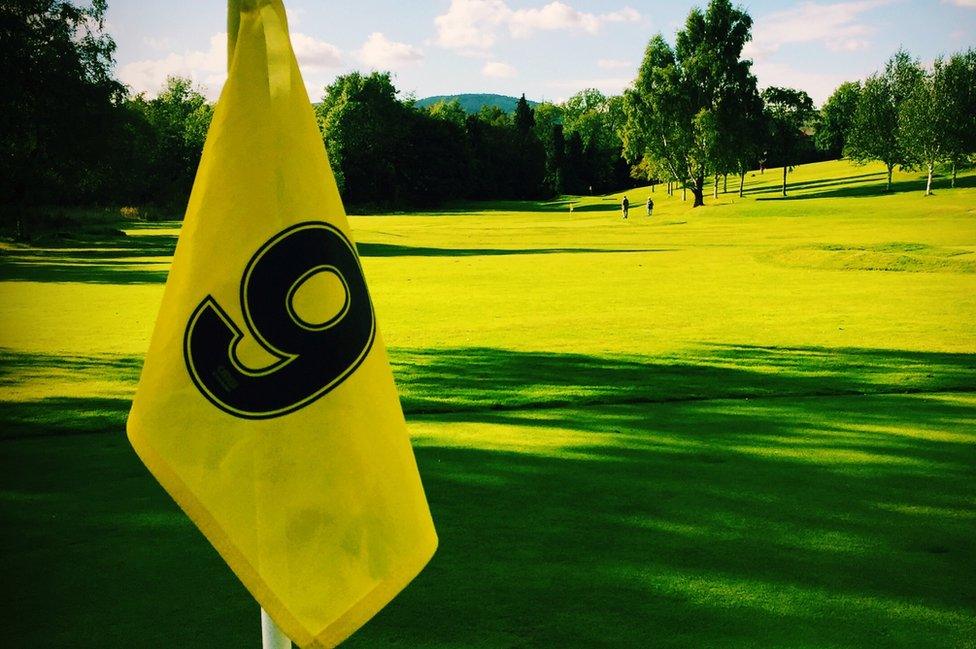
Up to four people can still play golf
Q: Can I meet friends to play golf or is it only one household? Gregor Macdonald, Linlithgow.
A: This is a case of checking your sport-specific rules. Each sports governing body has agreed rules with the Scottish government. Scottish Golf says on-course golf can continue with up to four players from four households participating together. However, hospitality rules apply to any post-round drinks in the club house.
Q: If I regularly run outside with a group of friends, is that still allowed? Sandy, Bishopbriggs.
A: The Scottish government tells us yes - provided physical distancing guidelines are adhered to.
Its latest advice on physical activity, external says "you may meet outdoors with members of one other household, up to a maximum group size of six, for informal exercise or activity".
However if it is an organised run/activity, your session will be run under the specific guidance of the Scottish governing body for that sport. For running, Scottish Athletics recommends adults train in groups of no more than 15 , externalwith social distancing if running outside and to maintain social distancing from the public.
For organised groups of walkers, Scottish Ramblers say group sizes are restricted to a maximum of 30, external with social distancing and groups may choose to limit the size further to keep everyone safe.
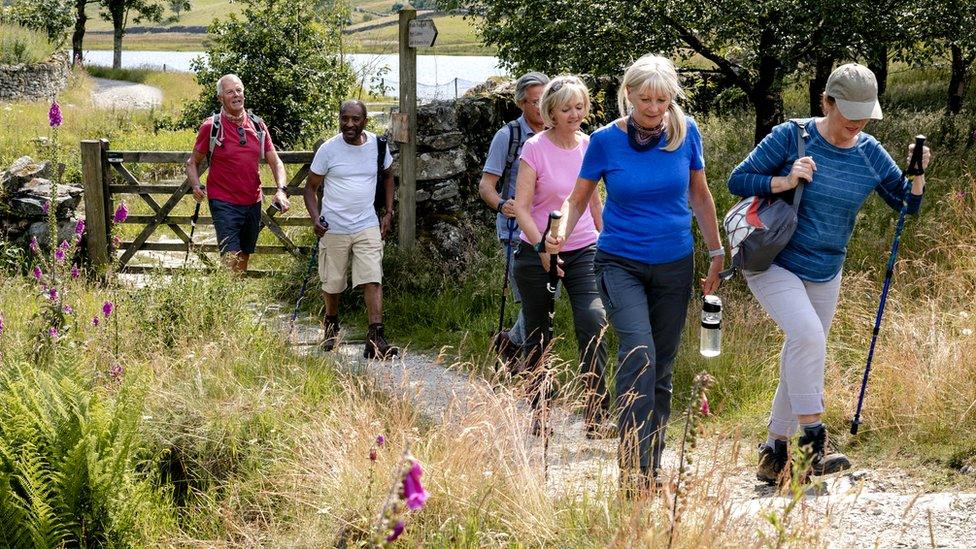
Walking and running outside can go ahead as long as social distancing takes place
Work and services
Q: Are we currently allowed to car share between households if it's just two households? Karen Beveridge, Glasgow.
A: No. Scottish government advisers tell us this has never been allowed except for caring or essential visits such as hospital trips.
Q: I'm in East Dunbartonshire (under restrictions) - can I still have someone in to clean my house and can I have a repair man in? M A Tindall, Lennoxtown.
A; Yes, workers are allowed with provided appropriate precautions are taken and the latest guidance adhered to.

Shared work transport in vehicles is still not allowed and the advice remains to work from home if possible
Q: Can three workmen travel in the front seat of a white van? Elizabeth Blackwood, Paisley.
A: The Scottish government says no - car sharing is for essential journeys only.
Q: Are mobile hairdressers allowed in people's homes? Eric Macdonald, Paisley.
A: Yes, as long as the hairdresser adheres to guidance within the beauty/hairdressing sector and uses appropriate PPE.
Q: Does the rule of six apply only to social gatherings , or also to business management meetings in an office and to club committee meetings? Duncan Macphee, Fort William.
A: Social gatherings, but it should be a guide to restrict all contact too. Club Committee meetings are not essential and should be taking place online. The default position with work remains at home.


Use the form below to send us your questions and we could be in touch.
In some cases your question will be published, displaying your name, age and location as you provide it, unless you state otherwise. Your contact details will never be published. Please ensure you have read the terms and conditions.
If you are reading this page on the BBC News app, you will need to visit the mobile version of the BBC website to submit your question on this topic.
More answers to your questions about coronavirus restrictions
Below you'll find some of the questions sent in by readers that we have found the answers to.
- Published10 September 2020
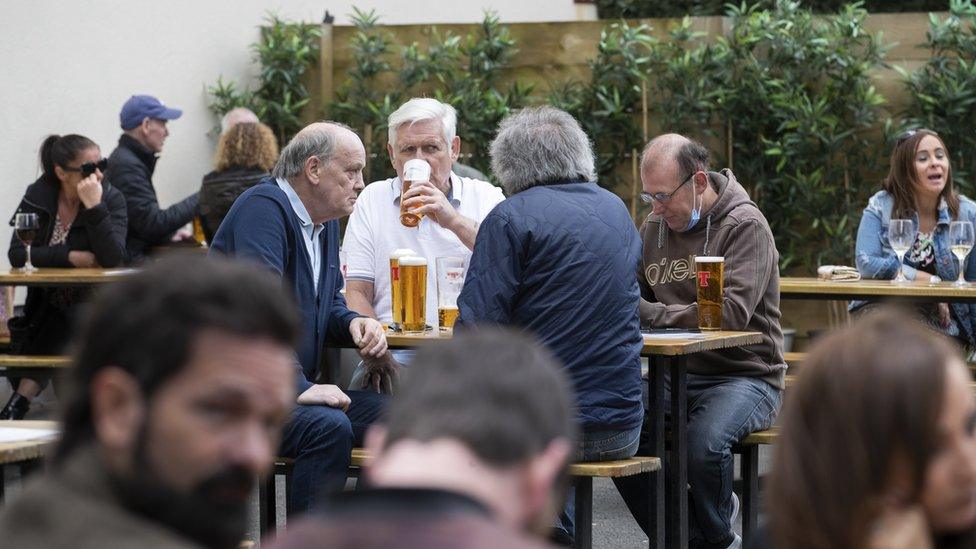
- Published1 July 2022
